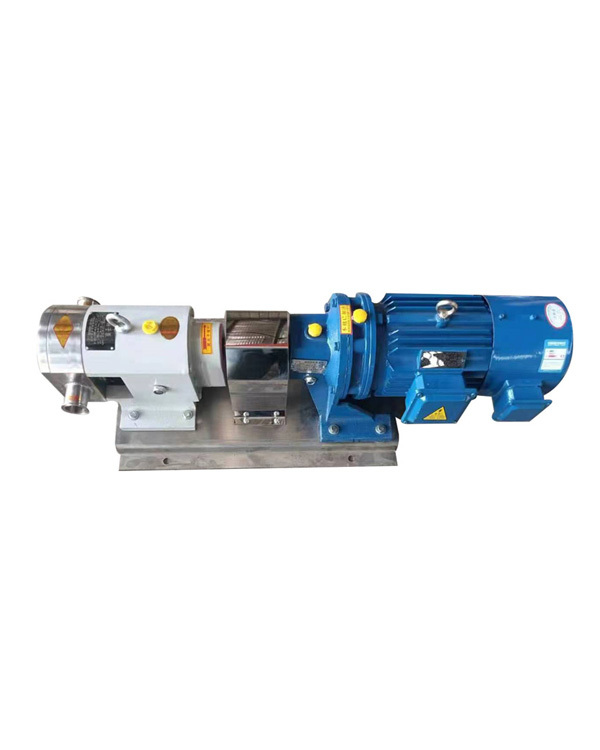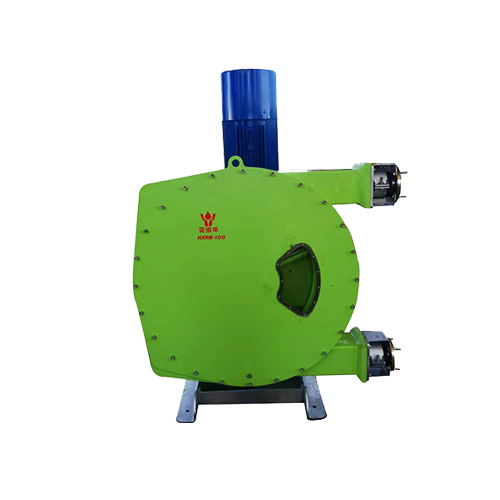Maximizing Efficiency with Rotary Lobe Pumps for Wastewater Sludge Management
Mar 31,2025

Rotary lobe pumps are an essential technology in the management of wastewater sludge, offering reliable and efficient solutions for a variety of industrial applications. These pumps are designed to handle thick and viscous fluids, making them ideal for transferring wastewater sludge, which often contains solid particles and varying viscosities. Here, we explore the key features and benefits of rotary lobe pumps in this context, helping professionals navigate their options for effective sludge management.
One of the most significant advantages of rotary lobe pumps is their ability to maintain a consistent flow rate, regardless of the fluid's viscosity changes. This consistent performance is crucial for wastewater treatment facilities, where the nature of sludge can fluctuate significantly. The pump’s positive displacement design allows for the precise movement of sludge, minimizing shear and preserving the integrity of the solids being transferred. This feature is particularly beneficial when dealing with biodegradable materials, as it helps maintain the quality of the sludge for further treatment processes.
In addition to their flow consistency, rotary lobe pumps are known for their ease of maintenance. With fewer moving parts than other pump types, they require less frequent servicing and are generally easier to repair. This reliability translates into reduced downtime, which is essential for maintaining the operational efficiency of wastewater treatment plants. Furthermore, many rotary lobe pumps are designed with easy-access components, ensuring that maintenance can be performed quickly and efficiently, further enhancing uptime.
Another noteworthy attribute is their ability to handle a wide range of temperatures and pressures, making them suitable for various stages of wastewater sludge processing. Whether it’s during the initial pumping from collection tanks or transferring sludge to dewatering systems, rotary lobe pumps can adapt to the demands of the application. This versatility is particularly advantageous in larger industrial settings where multiple processes may be occurring simultaneously.
When considering rotary lobe pumps for wastewater sludge applications, it is vital to assess specific operational requirements, including flow rate, pressure, and the nature of the sludge being handled. Collaboration with pump manufacturers or experts can provide valuable insights into selecting the right pump configuration for your needs.
In conclusion, rotary lobe pumps represent a robust solution for wastewater sludge management, combining efficiency with ease of use. Their design allows for effective sludge transfer while minimizing shear and maintaining fluid integrity. With the added benefits of reduced maintenance and adaptability to varying conditions, these pumps are an excellent choice for professionals seeking to enhance their wastewater treatment processes. By understanding the advantages and applications of rotary lobe pumps, you can optimize your operations and achieve better outcomes in sludge management.
One of the most significant advantages of rotary lobe pumps is their ability to maintain a consistent flow rate, regardless of the fluid's viscosity changes. This consistent performance is crucial for wastewater treatment facilities, where the nature of sludge can fluctuate significantly. The pump’s positive displacement design allows for the precise movement of sludge, minimizing shear and preserving the integrity of the solids being transferred. This feature is particularly beneficial when dealing with biodegradable materials, as it helps maintain the quality of the sludge for further treatment processes.
In addition to their flow consistency, rotary lobe pumps are known for their ease of maintenance. With fewer moving parts than other pump types, they require less frequent servicing and are generally easier to repair. This reliability translates into reduced downtime, which is essential for maintaining the operational efficiency of wastewater treatment plants. Furthermore, many rotary lobe pumps are designed with easy-access components, ensuring that maintenance can be performed quickly and efficiently, further enhancing uptime.
Another noteworthy attribute is their ability to handle a wide range of temperatures and pressures, making them suitable for various stages of wastewater sludge processing. Whether it’s during the initial pumping from collection tanks or transferring sludge to dewatering systems, rotary lobe pumps can adapt to the demands of the application. This versatility is particularly advantageous in larger industrial settings where multiple processes may be occurring simultaneously.
When considering rotary lobe pumps for wastewater sludge applications, it is vital to assess specific operational requirements, including flow rate, pressure, and the nature of the sludge being handled. Collaboration with pump manufacturers or experts can provide valuable insights into selecting the right pump configuration for your needs.
In conclusion, rotary lobe pumps represent a robust solution for wastewater sludge management, combining efficiency with ease of use. Their design allows for effective sludge transfer while minimizing shear and maintaining fluid integrity. With the added benefits of reduced maintenance and adaptability to varying conditions, these pumps are an excellent choice for professionals seeking to enhance their wastewater treatment processes. By understanding the advantages and applications of rotary lobe pumps, you can optimize your operations and achieve better outcomes in sludge management.
Contact Us
E-mail :
sales@yaquanpump.com
service@yaquanpump.com
Phone/WhatsApp:
+44 7301702546
+63 9452052801
Address:
Room B208, Building 2, North Hongqiao Songri Center, No.215 Gaochao Road, Jiading District, Shanghai









